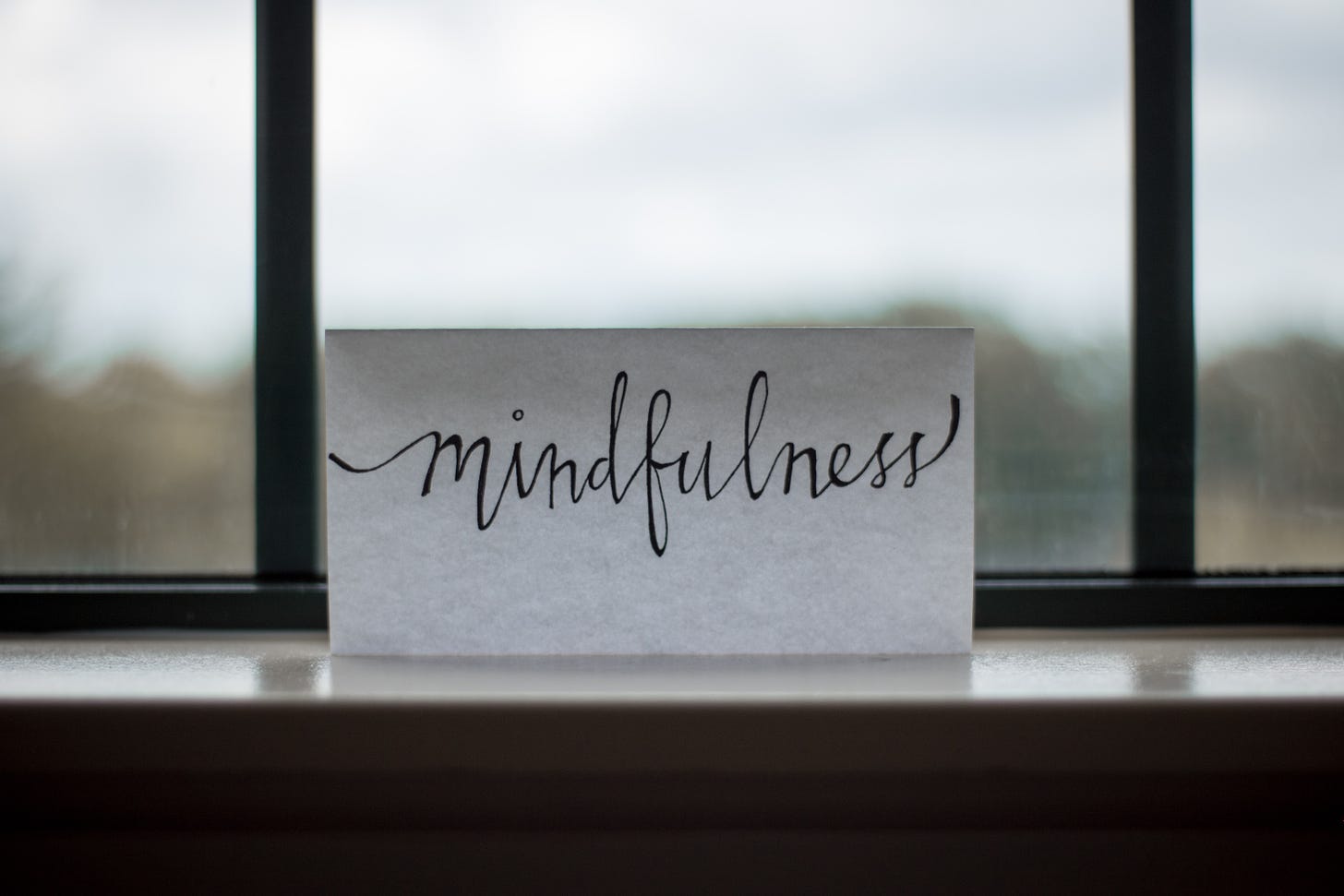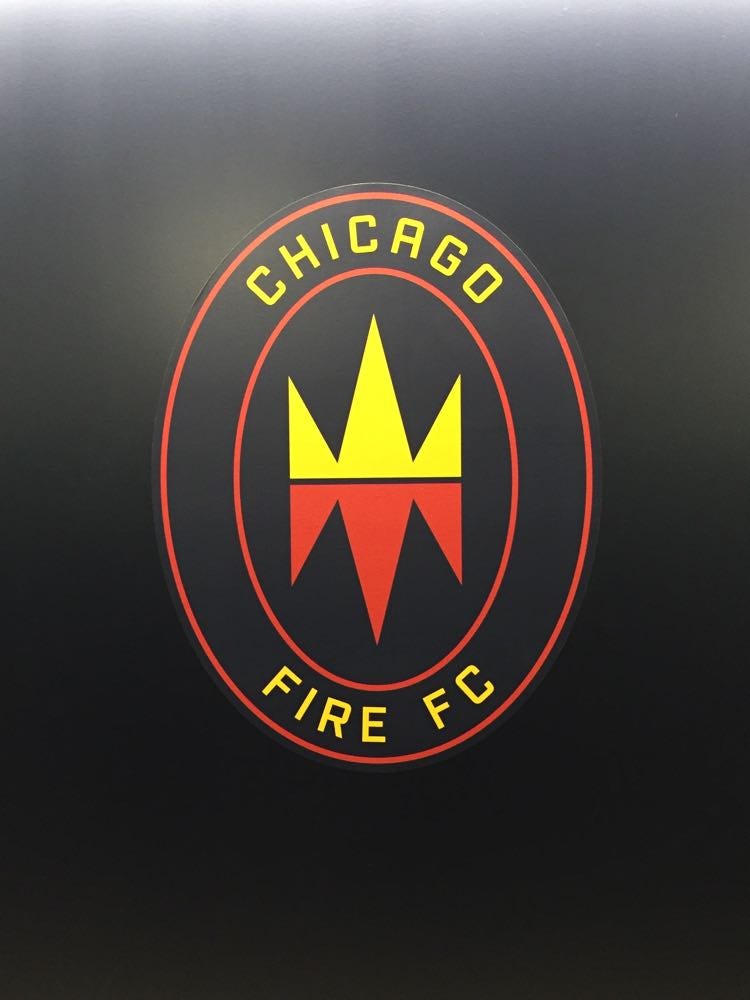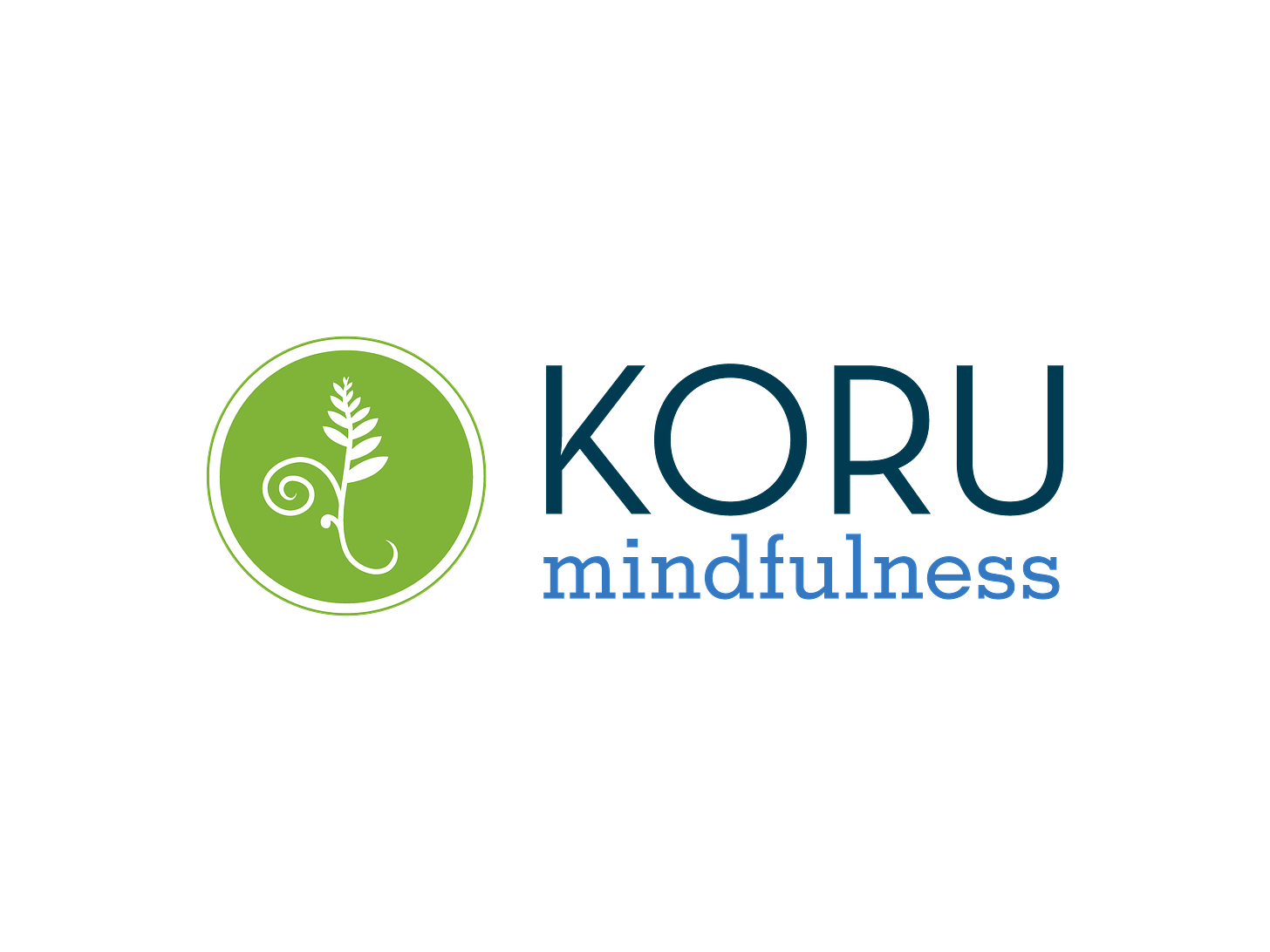
Mindfulness.
It's on the front page of magazines, there is a television series about it, there are hundreds of smartphone apps that teach it, and there are thousands of books on it. We hear about it all the time now, and it has been plastered all over popular media at one time or another. According to Market Research, it was valued at $959 million in 2015, and the average annual revenue growth is forecast to $2.08 billion by 2022. Quite incredible, right? This growth is driven by studios focusing on mindfulness training, which are mostly non-profit organizations or centers that are closely affiliated with yoga studios. Additionally, the hundreds of meditation smartphone apps that are on the market also have played a huge role. All you have to do is flip on Netflix and you can watch the Headspace series as it walks you through how to be more mindful using mindfulness and meditation exercises.
It has been remarkable to watch this growth from the perspective of the performance psychology field. Five years ago, I was asked a question by my graduate advisor, "what would you like to do your thesis research on?" At the time I had an idea of what mindfulness was and have practiced various contemplative practices myself, but I had no idea I could be able to research it, specifically in the performance context.
Jumping from 2016 when I first started conducting research in mindfulness to 2020 when I spent six months with the Chicago Fire Football Club (CFFC) as a mental performance intern, mindfulness has been a cornerstone of my approach. At CFFC I worked with the Performance Advisory and Support Services (PASS) team that predominately works towards developing high caliber academy players. As I worked with the academy athletes, an opportunity arose where I had a chance to deliver a 4-week mindfulness-based meditation program with the front office staff of the CFFC organization. I am extremely grateful for that opportunity, as I learned a lot from the individuals I worked with. Shout out to Felix Yu, Brian Roberts, and Rachael Jankowsy French.
Moreover, towards the end of March of this year, I had the chance to present what I did with the CFFC organization at a conference. It was at the Eastern Canadian Sport and Exercise Psychology Symposium held virtually by the University of Windsor. The University of Windsor is my alma mater and where my love for research began.
The reason why I chose to pursue a mindfulness-based project as an intern at CFFC was four-fold. First, the opportunity to work with a performing population other than athletes. Second, the multi-dimensional impact practicing mindfulness has on an individual's life and organization. Third, my experience facilitating mindfulness programs due to the work I have completed for my thesis and a number of teams and individuals I have consulted with. Fourth, coming across an article published by Nadler, Carswell, and Minda's (2020) work from SIGMA Assessment Systems, Inc. and Western University's department of psychology. They published a paper in Frontiers in Psychology where they facilitated an online 8-week mindfulness-based program with adults working full-time at a Fortune 100 company. The study concluded that an online-based mindfulness training program demonstrates effectiveness for enhancing well-being, self-perceptions of emotional intelligence, and workplace performance. After reading the article, my gears began to turn and I thought to myself, how can I replicate this? Just a year prior I received my certification to facilitate a mindfulness program called Koru Mindfulness, so I thought about adapting that to deliver it in a business population.
However, as I was planning on proposing such a program to the CFFC PASS team, the following occurred:
Our first COVID-19 quarantine, which caused everyone to work from home.
CFFC was working through re-branding and a new mission for the whole organization. A push to be intentional around having a systemic impact throughout the whole company and the greater Chicago community.
The willingness and motivation to create a meaningful experience during my six month contract with CFFC. This is how I felt from the start.
Slowly, the pieces were falling into place. Everyone was working from home, and I thought it would be ideal to provide support services through the PASS team to front office staff. To me it seemed like a no-brainer. Everyone was quarantining, mindfulness exercises have been shown to enhance well-being, and the CFFC organization wanted to have an impact beyond soccer. Therefore, I decided to create a proposal to facilitate a 4-week mindfulness program to CFFC front office staff. After proposing my idea to the PASS team, I was asked to try and sell the idea to the Director of Human Resources, which was followed by a green light. I was super stoked. It was the first time I received an opportunity to work with a performance population outside of sport.
Fortunately, I was already trained in mindfulness and meditation from The Koru Mindfulness Center affiliated with Duke University. The program consists of 4-weeks where you teach participants eight meditation exercises that they can implement into their daily lives to become more mindful. As the message was sent out across all departments at CFFC, 30 individuals signed up. Before we began, my research brain could not bare to pass up such an opportunity, so I decided to measure a few variables. I had everyone fill out questionnaires measuring their current levels of perceived stress, resiliency, positive and negative affect, and mindfulness. (I'd be happy to share the measures if you are interested).
Throughout the course of the four weeks, participants were guided through 4 sessions of experiential training along with optional 6:00 AM meditation sits for 20 mins a day. They also were provided with access to the Koru meditation app where they kept track of their daily practices, shared what they were grateful for, and had an opportunity to connect with me if they had any questions for further support. Following the 4-week program, it seemed to me that the implementation of such a resource for the front office staff was beneficial. This of course is anecdotal evidence, along with a few conversations I had with the participants that were willing to sit down for a virtual coffee afterward. I would have loved to run statistical analysis on the data collected when it came to the variables measured. However, there is a huge limitation. Although I had 30 individuals complete the survey before the program started I had less than half of them complete the survey upon completion. This of course is the unfortunate struggle of conducting intervention-based research. There were some fantastic responses from participants. A few mentioned that they would love to have an opportunity for such a program to continue supporting the employees of the organization. They also said that it was thanks to the program and what they learned that they were able to cope with being quarantined at home. Without any doubt in my mind, the program was a success.
You can now check out the lecture presentation I gave about this project on youtube. It begins with Felix Yu (senior coordinator and mental performance coach) describing the PASS program as an introduction in the first half and then I jump in with my mindfulness program during the second half. You will find that I may have forgotten to breathe during my portion of the presentation, which is due to the structured time we were allotted by the conference committee. I promise, no hard feelings, I just wanted to squeeze in as much as I could. I have learned an important lesson because of it. I hope you enjoy. If you have any further questions or comments feel free to leave them below.
Side note: If you want to learn more about the PASS program at CFFC, feel free to check out this article published on SBNation or head over to their website, both found below.
Performance Advisory Support Services of Chicago Fire Football Club
*Disclaimer: All information shared has been approved by CFFC front office and PASS staff.*
What I’m Reading:
Unwinding Anxiety: New Science Shows How to Break the Cycles of Worry and Fear to Heal Your Mind By Dr. Judson Brewer. Find it on Amazon.
Drug Use for Grown-Ups: Chasing Liberty in the Land of Fear by Dr. Carl Hart. Find it on Amazon.
ACT in Sport: Improve Performance through Mindfulness, Acceptance, and Commitment By Dr. James Hegarty and Dr. Christopher Huelsmann. Find it on Amazon.
What I’m Listening To:
- The Psychology Podcast: Julie Lythcott-Haims on How to Be an Adult.
- Julie believes in humans and is deeply interested in what gets in our way. She is a former corporate lawyer and Stanford dean. She serves on the board of Common Sense Media, and on the advisory board of LeanIn.Org, and she is a former board member at Foundation for a College Education, Global Citizen Year, The Writers Grotto, and Challenge Success. Julie is the New York Times bestselling author of the anti-helicopter parenting manifesto How to Raise an Adult. Her second book is the critically-acclaimed and award-winning prose poetry memoir Real American. Her third book, Your Turn: How to Be an Adult, will be out in April 2021.
References:
Nadler, R., Carswell, J. J., & Minda, J. P. (2020). Online Mindfulness Training Increases Well-Being, Trait Emotional Intelligence, and Workplace Competency Ratings: A Randomized Waitlist-Controlled Trial. Frontiers in psychology, 11, 255. https://doi.org/10.3389/fpsyg.2020.00255.




